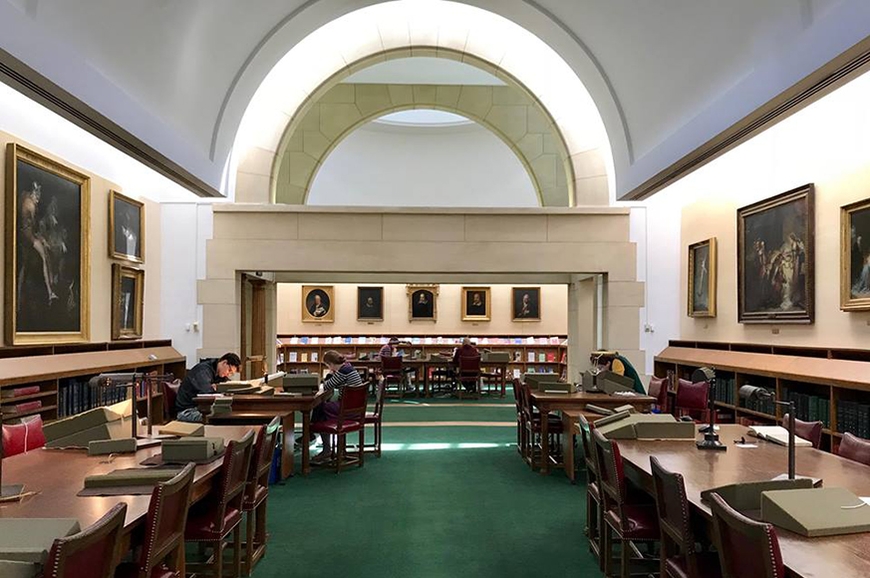Transcribing the Writing Body
"Much of our time was spent
hunched over large high-quality
photocopies of manuscripts,
taking turns reading a word or
a phrase or a line at a time."
While we had structured coursework during the afternoons, the mornings were free for all of us to do our own primary research. I would arrive, pack all of my belongings into a locker, place only a notebook, a pencil, and perhaps a phone or laptop into a clear plastic bag, and check in at the desk leading into the reading rooms. One of the best things about these morning hours of research is that we all knew about each others' projects, and since we were working side-by-side we built up a community of trust, asking each other for help and seeing if we could answer each other's questions.
We learned how quills were made and how letters were sealed, and we tried out recipes for ink. One day we even practiced writing in secretary hand to get an idea of the sequence of strokes for each letter. Our practice making those strokes ourselves made it much easier to recognize even badly misformed letters.
We also worked on learning the conventions and expectations of different forms of manuscript writing. For example, what is the typical ratio of contrasting hands in a legal document? What are some of the varieties of formats for legal accounts? Having Wolfe lead us through the answers to these questions really got us moving fast.
What was your biggest takeaway?
The biggest surprise for me was seeing just how much untouched material there is in archives like the Folger. Whole collections of letters or court accounts that have been looked at only in passing, or where only one or two letters in a whole collection have ever received scholarly attention and transcription. The impression of the sheer volume of work there is still to do has fueled me to work hard and work well.
How does the work you did this summer relate to your research interests?
I'm very interested in bodies of writing and looking at the human body as a text, and the ways in which the action of the hand ties the two together, particularly as it plays out in early modern drama. Up until now, I've only been able to look at print texts relating to my interests, but I am very excited to get to use my skills in looking at handwritten texts. It was perfect timing to jump into it immediately after my preliminary exams, just when I'm starting to work on my dissertation.



